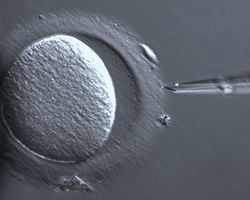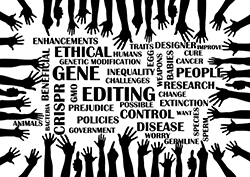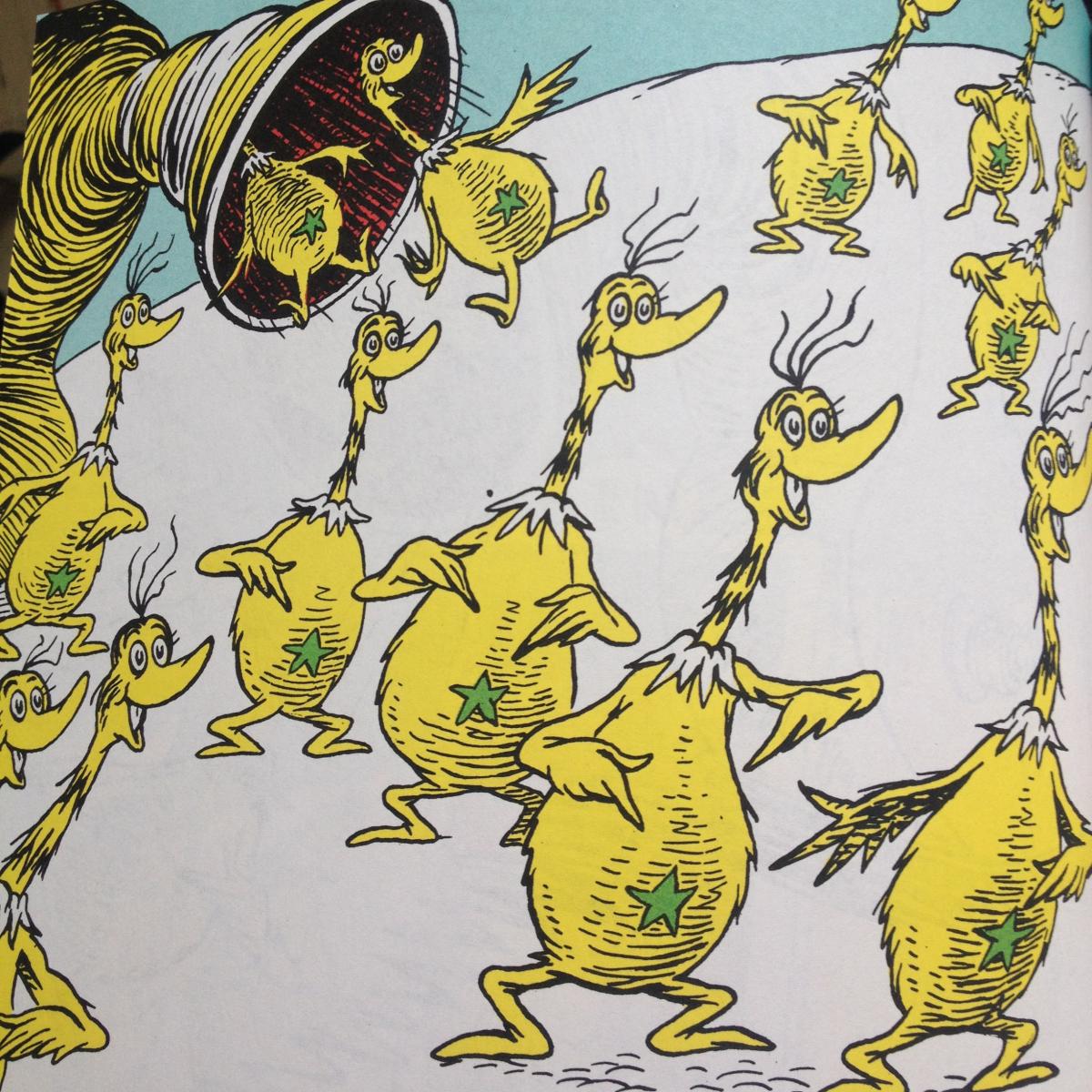With Great Power Comes Great Responsibility
CRISPR is a very powerful technology. With any new technology, there are many important questions about how to use it responsibly. These questions can be quite difficult. And not everyone agrees on the best ways to use CRISPR or gene editing. Some ask if we should even use CRISPR at all. One major area, though not the only one, for those difficult questions has been around the use of gene editing in humans.
Unintended Consequences of CRISPR

Many of these concerns are centered on the topic of germline editing. Germline editing is when changes are made to the genes of reproductive cells. Reproductive cells are also called germline cells. Germline cells include egg or sperm cells or zygotes, which are single egg cells that have been fertilized by a sperm cell.
All of the cells in the human body originally came from an individual’s germline cells. Any changes to the germline before development will also be present in all other cells in the body. Those changes will also be in that individual’s egg or sperm cells. That means that edits to the germline of an individual may be passed on to offspring through their own edited egg or sperm cells. Those changes can continue to be inherited in future generations.
Some are worried about the ethics of germline editing. Scientists are not fully sure what the effects of germline editing might be over many generations. Because it is such new technology, we may not fully understand whether or not it is safe. Others also argue it is wrong to take away the ability of future people to choose to have changes made to their genomes or not.
Justice and equity may also be a concern with germline editing. Some people may have access to germline editing while others do not. Unequal access to the technology may further increase differences in health and wealth that already exist in the world.
Designer Babies
A major area of ethical concern for gene editing is around what have been called “designer babies”. “Designer babies” are children that have had their genes edited to have certain traits their parents want. Those traits might be physical, like eye color or height. Or, they may be more complex traits like intelligence or musical ability.

Right now, “designer babies”are not yet possible. But with advances in CRISPR and gene editing research, they are closer to reality than before. The potential to use gene editing to create “designer babies” raises other concerns. One is about the return of eugenics.
Eugenics is the practice of trying to improve the human species by controlling the traits future humans will inherit. The idea is that by doing this, more people would have traits thought to be “good” and fewer people would have traits thought to be “bad” . In the past, eugenics was sometimes enforced by government policies. These policies prevented people who had traits thought to be “bad” from having children and encouraged people with “good” traits to have many children. Often, the traits thought to be “bad” were those of people from racial or ethnic minorities and people with disabilities.
Eugenics is an ethical problem because it has taken the choice of having kids away from people. Instead, governments made those choices for other people. With designer babies, people worry about a different kind of eugenics. In this kind eugenics, parents make choices about what kind of offspring they want to have by using gene editing. The idea of “designer babies” has many people worried that it would lead to increased prejudice and inequality. They are concerned that people with certain edited traits will be treated better or given more opportunities than people without those edited traits.

With these potential uses of gene editing, it is important to remember that, so far, they are not yet being done. While there are scientists doing lots of gene editing research, the production of “designer babies” is still far off. But it is important to think about the ethics of new science ahead of time. That way, if such uses become possible, we are already prepared for how to decide to go forward.
It is also important to recognize that many of these questions, while they are about science, are not questions that science can answer alone. Science often deals with facts and data. But ethics requires us to also think about the values and beliefs that we have. Not everyone’s values are the same, and that is okay. That is why it is so important that we think hard about these questions and that we talk with each other about how to build the kind of future that we want to see.
Read more about: Cutting DNA with CRISPR
Bibliographic details:
- Article: CRISPR Ethics
- Author(s): Dr. Biology
- Publisher: Arizona State University School of Life Sciences Ask A Biologist
- Site name: ASU - Ask A Biologist
- Date published: 14 Mar, 2019
- Date accessed:
- Link: https://askabiologist.asu.edu/crispr-ethics
APA Style
Dr. Biology. (Thu, 03/14/2019 - 14:32). CRISPR Ethics. ASU - Ask A Biologist. Retrieved from https://askabiologist.asu.edu/crispr-ethics
Chicago Manual of Style
Dr. Biology. "CRISPR Ethics". ASU - Ask A Biologist. 14 Mar 2019. https://askabiologist.asu.edu/crispr-ethics
Dr. Biology. "CRISPR Ethics". ASU - Ask A Biologist. 14 Mar 2019. ASU - Ask A Biologist, Web. https://askabiologist.asu.edu/crispr-ethics
MLA 2017 Style

Be Part of
Ask A Biologist
By volunteering, or simply sending us feedback on the site. Scientists, teachers, writers, illustrators, and translators are all important to the program. If you are interested in helping with the website we have a Volunteers page to get the process started.

